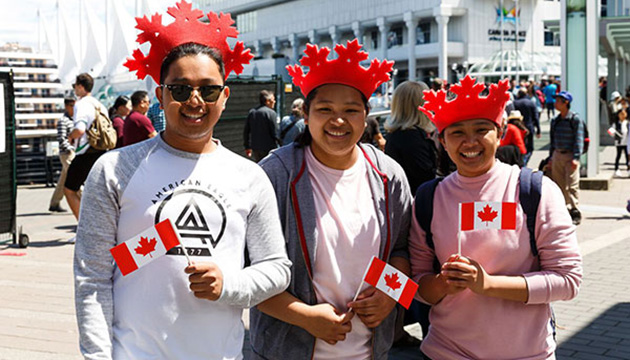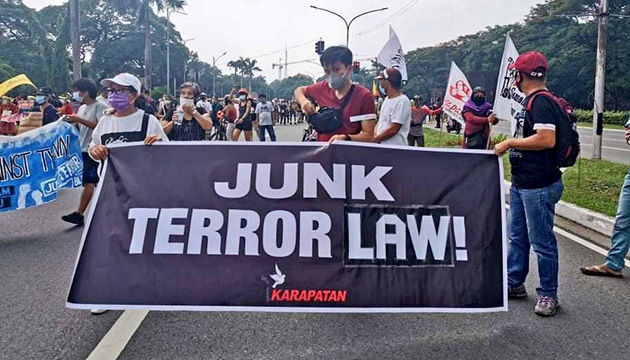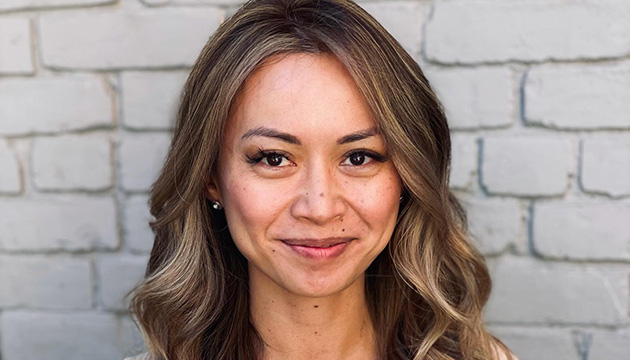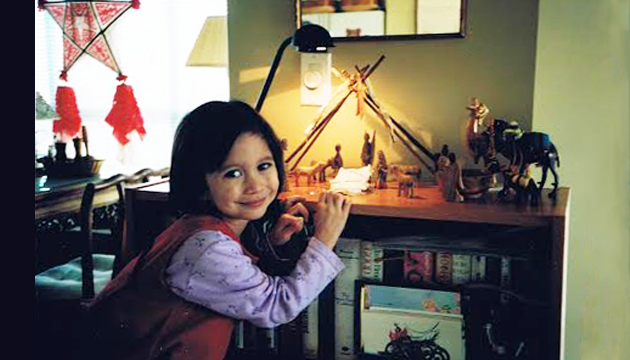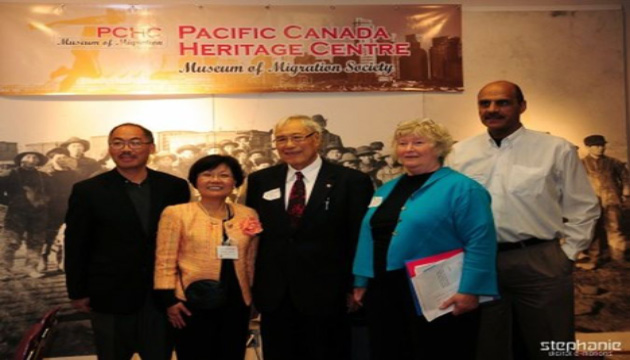On July 1st Canada celebrates a national holiday to mark the 153rdanniversary of Confederation that created Canada as a country in 186.
The almost one million Filipinos in Canada can take this opportunity to demonstrate that they are at home in Canada because this is where they now belong while asserting their multicultural Filipino identity and making their community visible in positive ways.
A good way to start is to familiarize themselves with Canada’s Charter of Rights and Freedoms which explains the following fundamental rights and freedoms guaranteed to any person living in Canada – whether a Canadian citizen, a permanent resident or a newcomer:
- freedom of conscience and religion;
- freedom of thought, belief, opinion and expression, including freedom of the press and other forms of media communication;
- freedom of peaceful assembly and
- freedom of association
- the right to live and seek employment anywhere in Canada
- legal rights (to life, liberty and personal security)
- equality rights for all
- the official languages of Canada
- minority language education rights
- preservation and enhancement of Canada's multicultural heritage
- Indigenous peoples’ rights
The Charter is enshrined in the Constitution, the supreme law of Canada, which explains how the government operates and affirms the social values Canadians believe are essential in a free and democratic society.
However, the rights and freedoms in the Charter are not absolute. Section 1 of the Charter says that Charter rights can be limited by law so long as those limits can be shown to be reasonable in a free and democratic society. And Section 33, the "notwithstanding clause,” gives Parliament and provincial and territorial legislatures limited power to pass laws that may limit certain Charter rights – namely fundamental freedoms, legal and equality rights.
With the emergence of Covid-19 in March 2020, restrictions on the freedoms of movement and association were imposed by the government to control the spread of the virus. These restrictions succeeded in flattening the curve. The pandemic also shows the valuable contributions of Filipinos in this critical time because they are highly represented in the essential areas of healthcare and the service industry making them frontline workers who risk their own lives to make everybody else safe, fed, clean and healthy.
The Canadian Filipinos in Pandemic
This pandemic has demonstrated that Filipinos are capable of making Canada a safe and better place with their competence, talents, skills, compassion and hard work. It has also proven that Filipinos are fully committed Canadians ready to risk their lives for the good of all. It is therefore time for them to make the Canadian government and society accept them as such because their whole family and future generations are here to stay. They came to seek a better life and should be provided with the means to make them upwardly mobile. Otherwise, there is a risk that they and their future generations will become a permanent underclass in a prosperous Canada they helped to build.
For over 50 years Canada has benefitted, through its immigration programs, from the cheap but quality labour of Filipino caregivers and temporary workers by taking advantage of their desperate need to escape from dire conditions back home and secure a better future for their children. It’s time for a just and caring Canada to be kind and make up for its unkind and shortsighted treatment of these migrants even though they voluntarily accepted the cruel conditions of their immigration to Canada.
Filipinos can change their current low status image in Canada by improving their image and getting into occupations commensurate to their educational and professional training. While there are conditions and pressures that may make them accept jobs below their qualifications, they could try to get recertification, new training, or change careers altogether. They can do this now to give the next generation a brighter future.
Since things will never be the same as they were before the pandemic, now is the time to start the changeover on how Filipinos are perceived and treated in Canada. But they must do it themselves. They must buckle down, take the bull by the horns and give it all they have got.
Canadian Filipinos can start the changeover by using Canada’s Charter of Rights and Freedoms to their advantage. For example, with the right to live and seek employment anywhere in Canada, move to a smaller town which may have more opportunities and needs for their particular services. With their multicultural Filipino talents and skills such as a gift of gab and persuasion, create new jobs and enhance their Filipino heritage. With freedom of expression, speak up against injustice and racism. Write blogs, use Facebook, Instagram and Twitter to connect and get supporters to join a cause. Advocate for gender equality (for men, women and LGBTQ) to ensure equal pay for similar work. Start a #MeToo Movement to make the world a better place.
In keeping with Canadian values, Filipinos know that being Canadian means helping to make Canada a just and caring society, a country where democracy and social justice are the norm and practice as shown by Canada’s Emergency Response Benefits – extra children’s allowance, rent subsidy, wage support for unemployment, special grants to students and seniors with disabilities – that Trudeau’s Liberal government has provided to Canadians.
To help build the country with fellow Canadians, Filipinos are gladly paying back whenever they can. Many of them are already doing this as seen in Filipino restaurants offering free meals to those in need, Filipino mom & pop businesses making free personal protective equipment (PPE) for frontline workers, and Filipinos laid off by Covid-19 volunteering as drivers/service providers for charitable institutions like Food Banks and making themselves useful in true Filipino bayanihan fashion even in Canada.
It is these undervalued Filipinos who will lead the changeover because they are the biggest group affected. Already they have proven in this pandemic that they deserve a fair shake. They have earned it by what they have done and what they are doing now.


